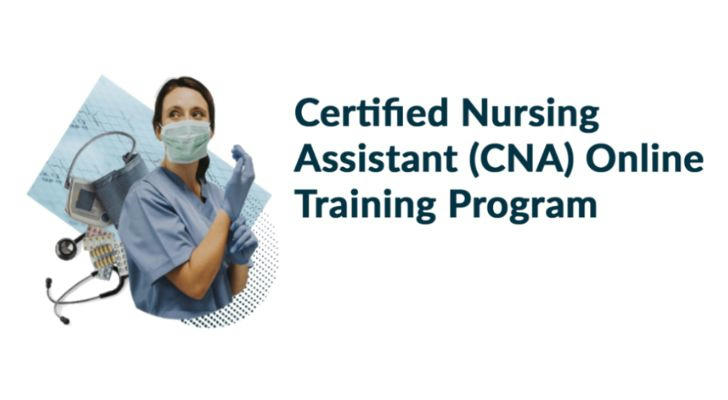CNA Course Guide: How to Become a Certified Nursing Assistant
Are you thinking about joining the healthcare field but aren't sure where to start? Becoming a Certified Nursing Assistant (CNA) might be the perfect first step. CNAs are crucial members of healthcare teams, helping patients with daily care. This guide will walk you through the steps to start your journey toward a stable and rewarding career.

1. What Is a CNA? Why Choose This Career?
A CNA, or Certified Nursing Assistant, helps patients with basic care, such as bathing, dressing, and eating. CNAs work in hospitals, nursing homes, and even in patients' homes. They assist nurses and doctors with daily patient care. CNA is a fast track into the healthcare field, with strong job stability. According to the U.S. Bureau of Labor Statistics (BLS), CNA jobs are projected to grow by 5% by 2031, reflecting the increasing demand for healthcare workers. The median annual salary for CNAs is $30,290, though this can vary depending on where you work. Many CNAs also use this role as a stepping stone to higher paying positions like Licensed Practical Nurses (LPNs) or Registered Nurses (RNs).

2. Do You Meet the Basic Requirements?
The first step is to meet some basic requirements. These vary by state but generally include:
**Age:**Most states require you to be at least 18 years old.
**Education:**You usually need a high school diploma or a GED.
**Background Check and Health Screening:**You'll need to pass a background check and complete a basic health exam.
Some states also require CPR and First Aid certification. Check your state's specific requirements before starting.

3. How Do You Choose and Enroll in a CNA Course?
Next, you need to choose and enroll in a CNA course. How do you pick the right course? First, make sure the program is state approved so that you can take the certification exam afterward. CNA courses can be taken either online or in person. Online courses offer flexibility, which can be helpful if you have other responsibilities. In person courses often include hands on training, which is essential for learning the skills you'll need.
Most CNA programs take between 4 to 12 weeks to complete, and the cost typically ranges from $1,000 to $3,000. Many community colleges and vocational schools offer scholarships or financial aid to help with the cost. Be sure to ask about any available financial assistance when enrolling.
4. What Will You Learn in a CNA Course?
What will you learn in a CNA course? The training includes both classroom learning and hands on practice. You'll study basic healthcare topics like anatomy, infection control, and patient rights. You'll also learn practical skills, such as helping patients with daily activities like moving, bathing, and eating.
The courses are designed for people with no medical background, so don't worry if this is new to you. The focus is on practical skills, and with practice, you'll get the hang of it.

5. How Do You Prepare for the CNA Certification Exam?
The certification exam is the key to becoming a CNA. It has two parts: a written test and a skills test. The written test usually includes 60 to 100 multiple choice questions covering what you learned in class. The skills test will require you to demonstrate five basic nursing skills in front of an examiner.
How do you prepare for the exam? Create a study plan, use course materials to review, and practice with sample questions. Practice tests are a great way to get familiar with the exam format. You can also find review videos and other resources online, such as on Red Cross or Pearson VUE websites, to help you study and feel confident.
6. What's Next After Passing the Exam?
Once you pass your CNA certification exam, you need to register with your state and get your official CNA license. After that, it's time to start job hunting. CNA roles are widely available in hospitals, nursing homes, and home care agencies. If you want to gain more experience, working at a larger facility might be a good option. Many CNAs use this role as a foundation to advance their careers, moving on to become LPNs or RNs.

7. Real Life Story: How Becoming a CNA Changed a Life
Take Linda's story, for example. Linda, a 35 year old single mom, had worked in retail for years but felt stuck in her career. She wanted a stable job that could provide a better life for her two kids. After hearing about CNA programs from a friend, she decided to give it a try, seeing it as a quick path into the healthcare field.
Linda enrolled in a CNA program at her local community college, which cost $1,200. She was able to get a scholarship, which helped ease the financial burden. During the course, she learned essential skills and completed a clinical rotation at a local nursing home. After finishing the 8 week course, she passed the state certification exam and received her CNA license.
Soon after, Linda landed a job at a nearby rehabilitation center, earning $32,000 a year. She worked regular 8 hour shifts, helping patients recover from injuries. After two years, Linda decided to further her education by attending night classes to become an LPN. Now, her income has doubled, and her family's life is much more secure. This career path completely transformed her life and opened doors she never thought possible.
Conclusion:Is CNA the Right Career for You?
Becoming a CNA is an excellent way to enter the healthcare field, especially if you're looking for a job quickly. This career offers job stability and provides a solid foundation for future advancement. Whether you're considering a career change or seeking a steady job, becoming a CNA is a choice worth considering. With dedication and hard work, this path can open up a new and rewarding career in healthcare
